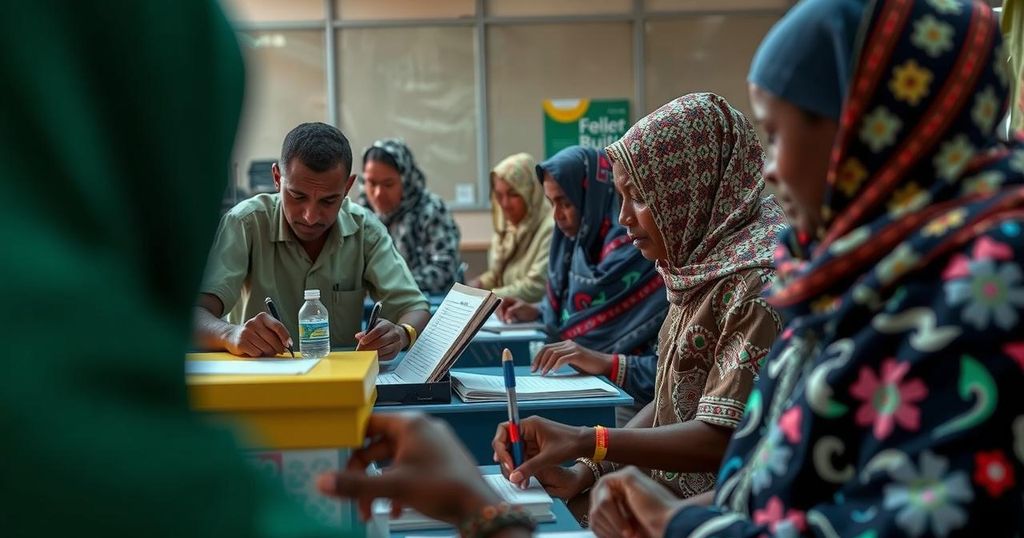Vote Counting Underway in Somaliland Following Peaceful Presidential Elections

The Somaliland presidential elections concluded peacefully, with vote counting underway by the Somaliland National Electoral Commission. Three candidates, including incumbent Muse Bihi Abdi, vied for the position, promising to enhance democracy and economic growth. However, the region faces ongoing tensions with Somalia and Ethiopia regarding territorial sovereignty and recognition, impacting Somaliland’s quest for international support.
Vote counting is currently underway in Somaliland following the conclusion of presidential elections held smoothly across the region. The Somaliland National Electoral Commission (NEC) announced that polls closed at 6 p.m. local time, with over 1 million registered voters participating at approximately 2,000 polling stations. NEC Chairman Muse Hassan Yusuf informed that counting would commence at the polling center level before progressing to district and regional levels, with results expected by November 21. General Mohamed Adan Saqadhi confirmed a peaceful electoral process across Somaliland, stating, “Thanks to Allah, the election took place democratically and peacefully. No incident was reported.” Three candidates, including the incumbent Muse Bihi Abdi of the ruling Peace, Unity and Development Party, contested the elections alongside Abdirahman Mohamed Abdullahi and Faisal Ali Warabe. Each candidate pledged to enhance democratic governance, stimulate economic development, and pursue international recognition for Somaliland, which has sought independence for over three decades. Despite its self-declared independence in 1991, Somaliland has faced challenges regarding its sovereignty, particularly in light of tensions with Somalia over a controversial agreement with Ethiopia. The election occurred amidst heightened tensions between Somalia and Ethiopia following a January memorandum allowing Ethiopia a long-term lease of coast access in Somaliland, a move that Somalia perceives as an infringement on its territorial integrity. Recent diplomatic strains have included the expulsion of Ethiopian diplomats from Somalia and calls for Ethiopia to withdraw from its agreement with Somaliland. Somali Defense Minister Abdulkadir Mohamed Nur reiterated the position against Ethiopian involvement in an upcoming African Union peacekeeping mission, citing violations of national sovereignty. This election marks the fourth presidential cycle since Somaliland’s independence declaration, showcasing the region’s resilience and democratic evolution despite the absence of international recognition.
Somaliland has operated as a self-governing region since its declaration of independence from Somalia in 1991, following the collapse of the Siad Barre regime. Unlike other areas in Somalia, Somaliland has established functioning government institutions, a political system that allows for democratic elections, and its own currency and military. The region has not gained international recognition as an independent state, despite having a stable political framework. Tensions with Somalia have escalated recently due to a controversial agreement between Somaliland and Ethiopia, regarding territorial and sovereignty issues.
In conclusion, the recent presidential election in Somaliland is a significant event demonstrating the region’s commitment to democracy and peaceful governance. The successful electoral process took place amid ongoing tensions regarding territorial sovereignty, particularly with Somalia’s concerns over Ethiopia’s involvement. The outcome of this election will be crucial for Somaliland’s aspirations for international recognition and continued economic development, reflecting the complex political landscape of the Horn of Africa.
Original Source: www.voanews.com







